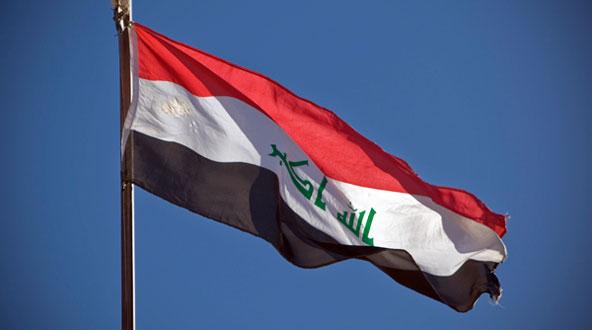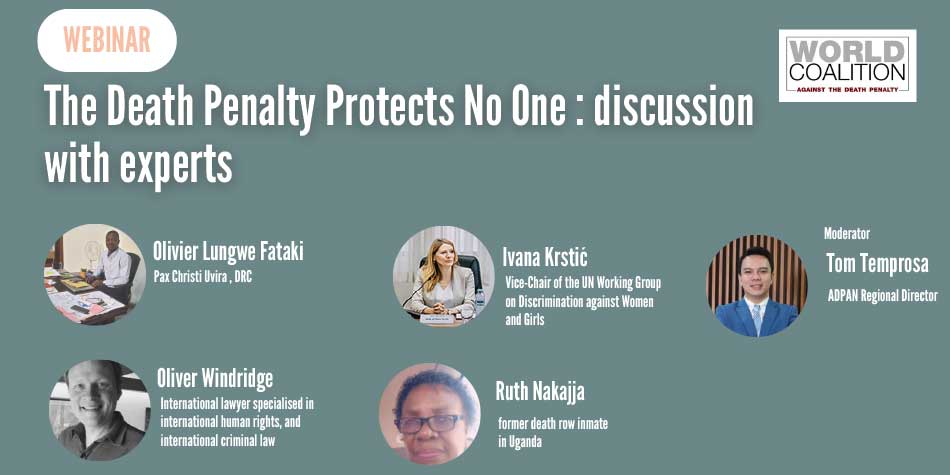
World Coalition opens dialogue with Iraq
Statement
Iraq’s history of dictatorship, war, foreign occupation and now internal violence with more than 4,000 people killed in attacks so far this year is the perfect illustration of what the World Coalition Against the Death regards as a difficult target country.
On the one hand, Irak executed 129 people in 2012 and 67 so far this year according to Amnesty International figures. Once a beacon of civilization, the country is now among the world’s top executioners, side by side with its neighbor Iran, Saudi Arabia, the US and China – although the latter is leagues ahead.
On the other hand, the abolitionist struggle is faced here more than anywhere else with a strong core of well known objections. You can hear them time and again from the mouth of those who favour the death penalty or accept it with a shrug as a necessary evil – in a war on terror, no leniency is deemed acceptable.
This was again what Iraq’s Ambassador to Paris, Fareed Yaseen told us after he accepted to meet World Coalition representatives, President Florence Bellivier and Vice-president Raphaël Chenuil-Hazan, on 11 September.
For more than one hour, we talked serenely about the ambassador’s personal history as an exile and founder of an organisation supporting the victims of enforced disappearances – another scourge in Irak; about Iraqi President Jalal Talabani’s long-term inability to perform his duties; about the regrettable permanence of exceptional measures; about the return to policing techniques used under the old regime, and amounting to inhuman and degrading treatment; about the striking lack of reliable and accessible statistics about death sentences and executions.
A treadmill of hasty executions
We left this peaceful, constructive meeting with the feeling that we could open a dialogue with Iraqi civil society, and possibly with members of regional parliaments, on the scandalous treadmill of hasty executions engulfing dozens of persons each year.
The violence of each individual case remains independent from the arguments defended in principle by the 145 member organisations – one of them Iraqi – in the World Coalition anywhere needed.
Even if it was handed down after a fair trial, which is rarely the case even in the most sophisticated democracies, the death penalty would be a violation of the right to life and of every human being’s right to dignity. It is a State’s unbalanced right to kill an individual and its deterrent effect has never been demonstrated. On the contrary, it perpetuates an infernal cycle of violence. Detention conditions on death row often constitute inhuman and degrading treatment.
The death penalty cannot win the war on terror
Regarding the Iraqi authorities’ legitimate concern with the security of the Iraqi people, it is worth noting that the death penalty never helped win any war on terror. On the contrary, those States that did get rid of terrorism achieved that result while abolishing capital punishment.
This is why the World Coalition Against the Death Penalty will do everything it can to raise awareness among Iraq’s civil society of the absurdity of using the death penalty intensively. The country should have other priorities than playing with the life and death of its criminals, regardless of the dangerous, political nature of their crimes.
Before such long-term, in-depth evolution and its prerequisite – a solution to religious tensions – can be achieve, the World Coalition urgently calls on the Iraqi authorities to adopt a moratorium on death sentences and executions, and to publish reliable statistics. As long as the president is not fit to sign execution warrants (a highly personal duty), the World Coalition calls on Iraq to stop the vice-president from doing so. How can a person’s life be balanced with the argument of constitutional continuity?
Florence Bellivier
President of the World Coalition Against the Death Penalty
FIDH representative on death penalty
Photo: BWJones







